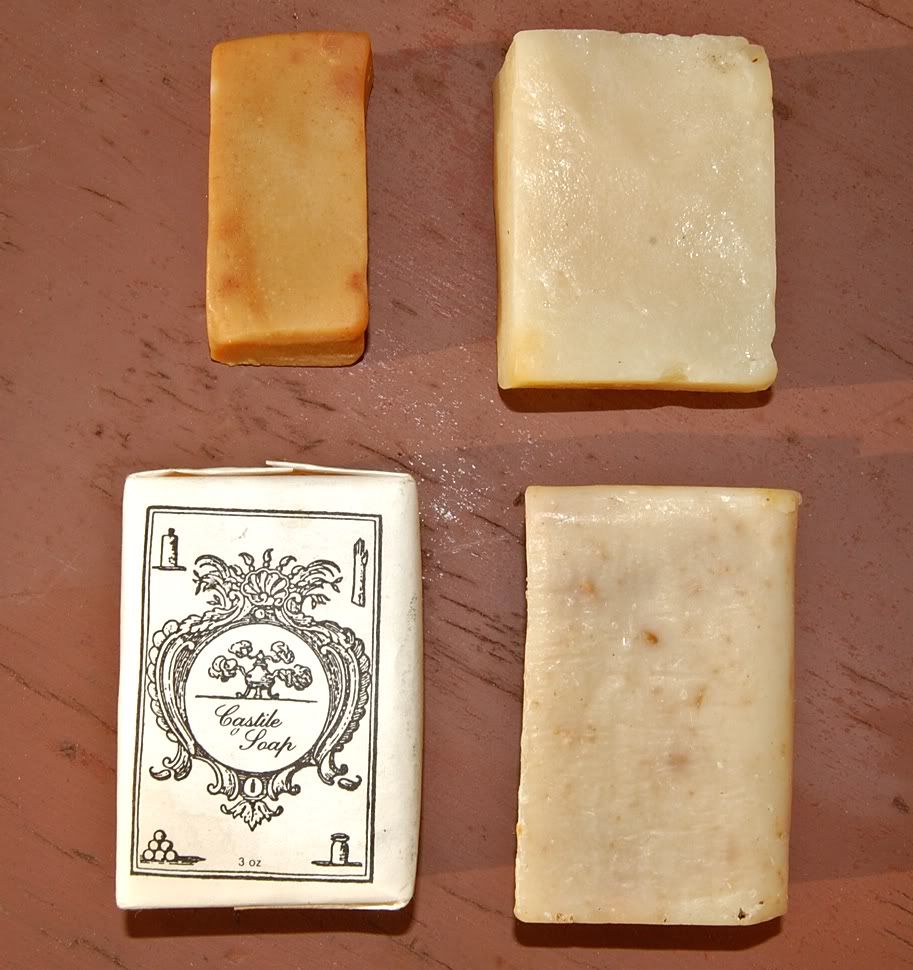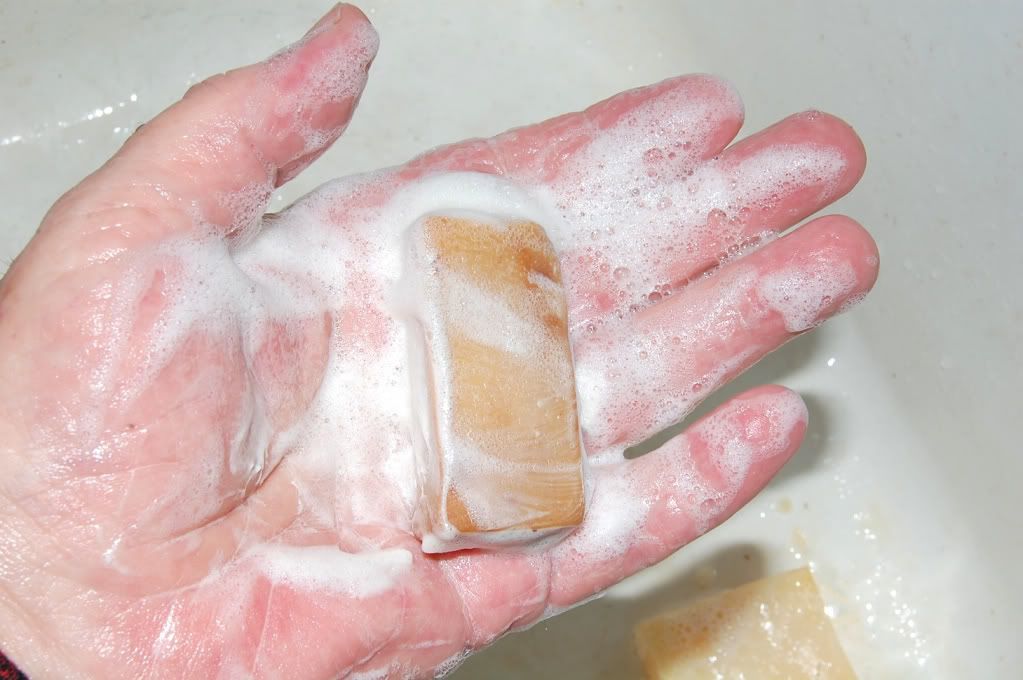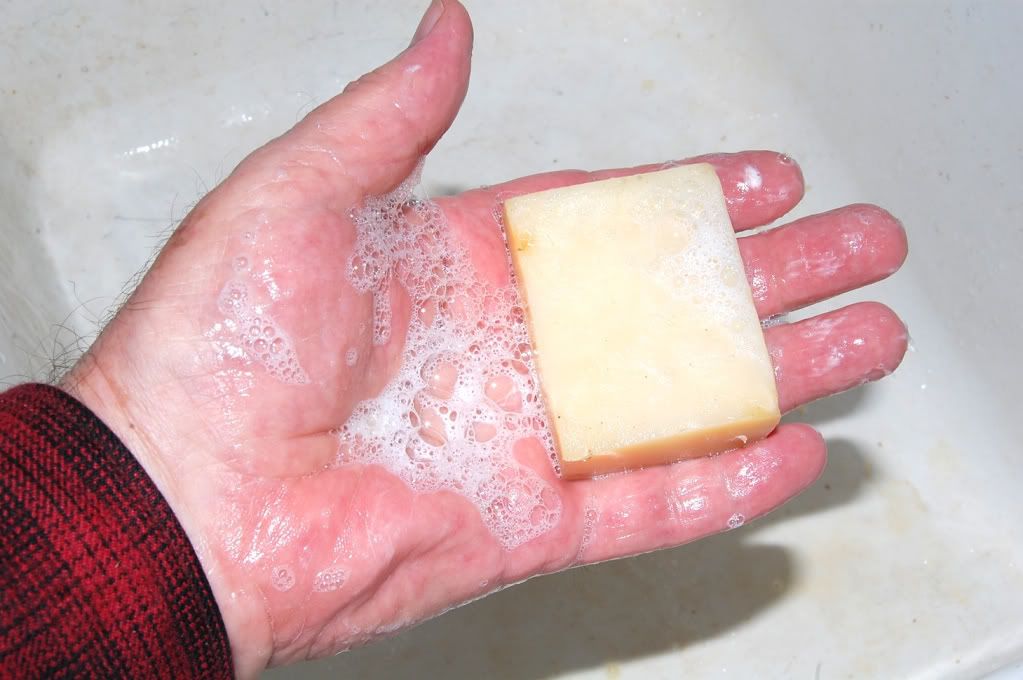Well IF you do it with wood ashes, you get KOH, potassium hydroxide, and that gives you when used with lard..., soft soap. I am told. I am also told that soft-soap was the common soap that was home made.
Castile (Spanish) soap was/is a hard soap. Olive oil was the fat base, and they may have used some sea water in it to make it harden. (I am told that adding some salt to the water in traditional soft-soap will help it harden up.) Castile would lather with sea water when washing clothes, so was popular with sailors, which then resulted in it being traded to other ports outside of Spain, and it became popular with the public..., who could afford to buy soap. Hard soap is easier to transport too.
The soap that I have made is with potassium hydroxide (NaOH) aka Lye, and that makes a hard soap. This is what most folks today use, dissolved in distilled water or in rain water. Minerals in tap water will mess with the formation of the soap.
Use whatever you need to wash dishes. IF you are really worried about having some clear soap, perhaps bright green or bright blue..., look for a dish soap that is milk white.
I draw the line at food-born-illnesses when it comes to authenticity :shocked2: . So use what you need to use first; worry about appearances later.
LD




